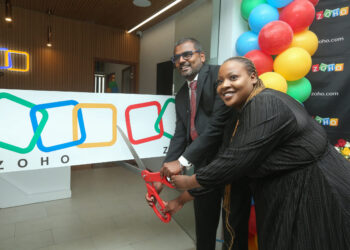Artificial intelligence (AI) is changing the world. The last two decades have laid the infrastructure to give over 5 billion people access to digital services through smartphones and the Internet. This has primed the world for an AI revolution, the exponential growth of which we’re beginning to see through services like ChatGPT that fundamentally change how we interact with technology.
Like every technological paradigm shift, from fire to flying or the industrial revolution to the Internet, the benefits of AI will also be challenged by its threat. While my paranoid nature is certain that the net impact will be positive (because there are many more good people in this world than bad), one growing area of AI concern is how we distinguish ourselves as human beings versus AI.
Trust is a base requirement for our lives to operate effectively, from our relationships with those around us to our interactions with business and government services. We have built systems to facilitate trust; our ID cards prove who we are, and our physical address ensures that we can be found. But in Africa and other emerging markets, poor identity and physical addressing infrastructure limits trust, increases fraud and holds back the economy. MIT estimated that India’s lack of a physical addressing system costs its economy 0.5% of its GDP. Visa’s latest fraud report shows that attempted fraud in Africa is 5x more than the US.
Over the past two decades, we’ve seen technology try to help us prove we are who we say we are. Before, every transaction at a bank had to be done in person, but over time, these physical verifications have been replaced by digital ones; we’ve all solved annoying online captcha puzzles, fumbled for another one-time pin (OTP), and maybe more recently awkwardly recorded a selfie video of yourself.
However, as more and more services become digital, the fraudsters keep out-innovating these measures. AI can now impersonate a customer service agent or make a video of you speaking from just a photo. This undermines the ability of businesses across various industries to identify and verify their customers. In January 2023, Visa saw a 60x increase in fraud rate for Financial Services compared to just a year earlier.
Proof of address is stuck in the analogue era
Smart operators worldwide understand the threat posed to customer verification by AI and are already investing in mitigations. Meta has begun using paid-for verification for Instagram and Facebook. PayPal uses a detailed process that relies on multiple layers of compliance, verification, and monitoring to verify and onboard customers.
However, proof of identity using an ID card is no longer enough, so startups are innovating to help businesses truly know their customer. Worldcoin launched earlier this year to use a person’s iris as a form of identity; others like Bright ID schedule group video calls where you need to hold a conversation to prove you’re a real human being.
One area that is being overlooked is knowing where the customer lives. In developed markets like the US and UK, your proof of address is the ultimate form of accountability because whether it’s your bank or the police, they can physically find you if you commit fraud.
Yet, proof of address has become harder to validate in our modern world. People don’t live in the same house for most of their lives like before; in fact, digital nomads don’t even have a fixed abode at all. Bank statements or utility bills are no longer posted through the letterbox, enforcing a point of verification because they’re now digital PDFs delivered to your phone. It used to be relatively easy to update your few services when you moved, but now you have an overwhelming number of accounts to update.
And this is the best-case scenario. It’s estimated that 4 billion people – half the globe – do not have a formal physical address because their building or road has no identifier. And what about those who do not have a fixed home because they are homeless or have had to flee their country as refugees?
When global banking regulation forces financial services to only offer their services if the customer can prove their address, this creates a massive problem for the world’s economy. On paper, the regulators are doing the right thing to ensure financial services correctly implement effective Know Your Customer (KYC) measures. However, it creates a catch-22 for financial service providers; to open accounts, they need to have verified customer addresses, but there are no practical ways to do this beyond sending a human agent to the customer’s address, which costs too much, especially for accounts for lower-income customers.
AI to the rescue
My Kenyan co-founder once said, “We’re blessed in Africa to have so many problems because it creates so much opportunity”, and it’s this problem and opportunity that my co-founders and I have spent the last 10 years trying to solve. We believe that it’s a human right for every person to have a verified address so that they can access the services they deserve, from opening up a bank account to having an ambulance arrive at their door.
We see a world where anyone with a smartphone has a digital address that uses the location data in their phone, behavioural science and AI to verify they live where they say they do. As a centralised addressing system, when the person moves, they just have to notify us for all other services to be updated. It puts control of the address into the hands of the user, who can manage their data privacy and only give access to their address to the businesses and people they trust.
The behavioural science in our solution grounds a user’s digital account to the real world through where they live, enabling both proof of address and proof of humanity. While AI can impersonate your voice and create a video of you, it cannot impersonate where you live.
In our new world, where it’s becoming increasingly difficult to build trust and distinguish the difference between AI and a human, perhaps the solution is closer to home than we think.
By Timbo Drayson, CEO & Co-Founder, OkHi



















